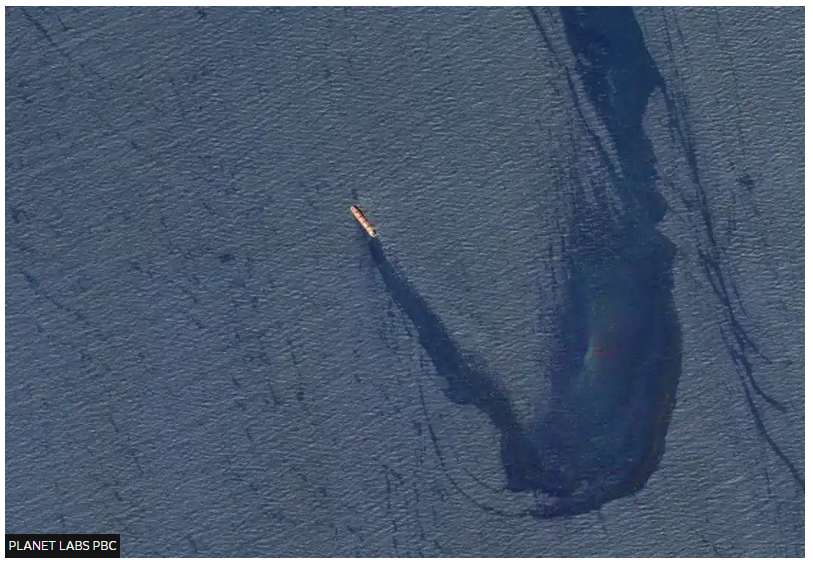Bansri Shah, Pune
A United Kingdom-owned, Belize-flagged vessel, Rubymar, was attacked by a ballistic missile in the Bab el-Mandeb Strait by Houthi rebels on February 18 creating an 18-mile (or 29 kilometers) long oil slick in the Red Sea.
The vessel, which was on its way to Bulgaria from Khorfakkan in the United Arab Emirates (UAE), had over 41,000 tonnes of fertilizer on board. The attack has also created the threat of a spill from the fertilizer on the vessel into the sea, said the US Central Command (CENTCOM). “The Houthis continue to demonstrate disregard for the regional impact of their indiscriminate attacks, threatening the fishing industry, coastal communities, and imports of food supplies,” said the statement from CENTCOM.
The attack, which led to no casualties, did lead the crew to abandon the vessel and cause significant damage to the vessel itself. Based on satellite images from Planet Labs PBC, it is observed to be leaking oil into the Red Sea. Deputy Pentagon Press Secretary Sabrina Singh said Thursday that the Rubymar was “taking on water as we speak.”
According to a CNN report citing an unnamed US official, the threat of further Houthi attacks along with the condition of the water presents a challenge to safely access the ship and tow it to a port.
The missile was likely to be targeting a U.S.-flagged, owned and operated chemical and oil tanker, MV Torm Thor but no injuries or damages were reported from the missile or the tanker, said CENTCOM.
As a response to the Houthi strikes, the US and the UK, with the support of a number of other Western allies, have been bombing governorates across Yemen. Multiple “self-defense” strikes against the Houthi-held territories in Yemen were also reported by the US military. These strikes targeted and destroyed seven mobile anti-ship cruise missiles that were being readied to attack towards the Red Sea. CENTCOM’s statement said that these defensive actions will protect freedom of navigation and make international waters safer and secure for US Navy and merchant vessels.
The rebels have been disrupting trade through the Red Sea repeatedly, stating that the attacks will not stop until the end of Israel’s war on Gaza. However, they have also targeted vessels that have no clear links to Israel which has jeopardized the transport of goods and cargo on a key trade route for Asia, the Middle East and Europe.
